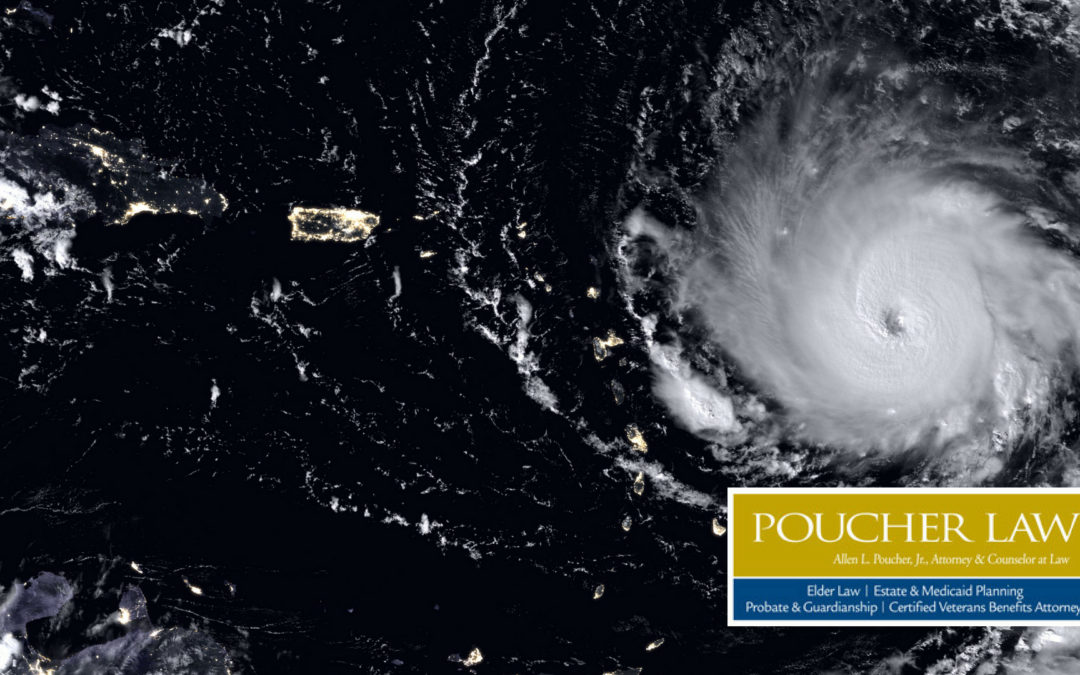“Plan your work, and work your plan.” It’s a principle that works for the military, in business and in sports. But it also applies to hurricanes, a weather catastrophe that Floridians are all to aware of.
With hurricane season starting in June every year and lasting until the end of November, it is never too early – or too late, for that matter – to come up with a plan.
Unfortunately, seniors are more vulnerable to the effects of natural disasters. This makes creating a plan for yourself and your senior loved ones all the more important. When a hurricane is about to hit your area, you may not have a lot of time to prepare. Further much needed supplies may be wiped out by others who are preparing at the same time.
Creating a solid plan ahead of time for the hurricane, much like creating your Florida estate plan, can reduce anxiety and pave the way to successfully outlasting most any storm. We want to share with you our tips that we share with our family, friends, clients, and local professionals.
1. Build a Team.
First, meet with trusted family members, friends and neighbors and start talking about your concerns. As a Florida senior, what you would do if your community was in the oncoming path of a hurricane. What are your needs? How do they differ from your friends? These confidants should become your team of emergency contacts. Talk to them about any physical limitations or health issues you have, and make sure that they are aware of them. Make sure they know who is your agent under your power of attorney in the event of a crisis. This could be critically important in the event that you lose power or an evacuation order is issued.
2. Create a Communication Plan.
Like in battle, communication allows others to know where you are, if you are alright, or if you need help. The same holds for hurricanes. It’s recommended that you keep a laminated list of contact information of your trusted team in your wallet or on your person. Your estate planning attorney may even have a tool he or she can provide you with for doing so. It’s also advised that you keep an out-of-town person on the list. After a disaster, it can sometimes be easier to get through to someone outside of your affected community.
3. Know Your Disaster Plan.
Get familiar with your community’s emergency services. Where are the evacuation centers? What transportation services are offered? If you live in a nursing home or retirement community, what are their disaster procedures? Understanding such things will give you confidence when it’s time to act. Do not wait to inquire about disaster preparedness until the storm is here.
4. Determine Exit Routes and Meeting Places.
Take a day and plan the best way out of your home, long-term care facility, or neighborhood. If you cannot return home or if phone lines are down, plan a meeting place for friends and family to find you. Put it on paper, and practice several times a year. If you are relying on a facility, ask when it is having a “fire drill” on these procedures and get involved.
We know disaster preparedness may seem like a lot of work on the front end but it is vitally important. Do not wait for a crisis to plan. Whether it is for a hurricane or a sudden catastrophe in your life, you will be glad you took the time to plan. Do not wait to contact us with your questions so we may work on your plan with you!

